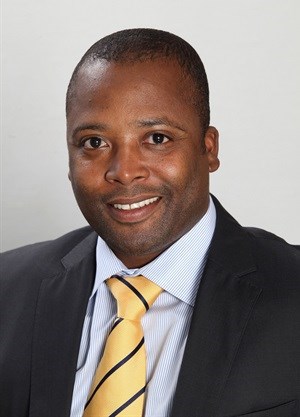






The results mark Dipula's first with its new capital structure, having converted its linked units to the simpler ordinary share structure, for both A and B shares. It also debuts its first distribution reinvestment alternative for Dipula B shareholders.
As well as delivering solid results, Dipula also achieved remarkable portfolio growth and a noteworthy outcome relative to its key performance areas.
During the year its nett asset value increased by 14.5%, from 815.13 cents to 933.73 cents, its market capitalisation rocketed by 57%, from R2.8 billion to R4.4 billion, its property portfolio achieved positive revaluations of 5%, and it secured enhancing acquisitions of R2.2 billion of which R1.2 billion had transferred by year-end with the rest expected to transfer before the end of the calendar year. It also decreased its vacancies by 20% in its second half alone, from 10% to 8%.
Izak Petersen, CEO of Dipula Income Fund, said that Dipula's on-target, inflation-beating distribution growth shows its strategy is paying off. This performance is attributable to good acquisitions, strategic revamps and redevelopments, cost efficiencies, good tenant retention and improved leasing of new space.
Petersen commented: "We are pleased to announce another good set of results, which are testimony to our track record of growing value for our shareholders, even in a difficult market."
He explained: "A key focus for Dipula this year has been to continue to acquire quality properties, dispose of our tail of non-core properties and recycle capital into strategic revamps and expansions that are mainly tenant driven. It has proved to be successful."
During the year Dipula closed R2.2 billion worth of quality-enhancing acquisitions, growing its portfolio by 57% to around R6.6 billion, spanning more than 800,000m², once all acquisitions have transferred. This is well in excess of Dipula's target for portfolio growth of between R1 billion and R1.5 billion for the 2015 financial year.
"Our acquisitions strengthen the quality of our portfolio. They are larger, stronger assets," explained Petersen. Dipula's R92.2 million worth of disposals reduced its smaller, non-core, management-intensive properties.
The acquisition and disposal activity during the year resulted in Dipula achieving an average property size of around 4000m², after starting the year at 3200m² - a significant improvement from 2500m² four years ago, when Dipula listed in 2011. Its average property value increased from R23 million to R31 million during the year, well up from R12 million at listing.
Its programme of acquisitions and disposals also skewed its diversified portfolio strongly toward retail property. Dipula has grown its retail exposure to 62% of its portfolio's income, from 51%, over the year. Its exposure to offices, the weakest performing commercial property sub-sector, reduced from 40% to 23% of its portfolio in revenue terms.
Dipula invested R59 million on refurbishments, redevelopments and upgrades, which also contributed to its continuous portfolio improvement. Among these projects is the conversion of Crownwood Corner, in Ormonde, Gauteng, to approximately 12,000m² of modern logistics warehousing space. This project, which will be completed before the end of 2015, is also the catalyst for Dipula's eco-friendly alternative energy and resource efficiency programme of projects. It is home to its first rooftop solar installation.
Dipula delivered excellent leasing progress with vacancies decreasing by around 10%, to 8% from 9% over the year. It achieved an 82% tenant retention rate, in spite of the demise of ABIL and its portfolio now comprises 91% A- and B-grade tenants. It also attained a 56% decrease in office vacancies, cutting them from 19% to 8%.
Even in a tough operating environment, with increasing administered costs, Dipula's cost-to-income ratio was stable relative to the prior year at 34.5% gross and 19.8% on a nett basis.
Vacancies related to the failure of ABIL, now mostly filled, knocked around R5 million from Dipula's bottom line.
During the year, Dipula internalised most of its property management. This is expected to result in cost savings of about R2.5 million in 2016 and even more in future.
Dipula continues to focus on quality asset management and improved property management while improving the quality of its portfolio. Proactive leasing of vacant space and tenant retention will remain a focus area in 2016.
Petersen reported that Dipula plans to spend R350 million on innovative, strategic revamps in the next 18 months. These projects are expected to yield approximately 11% and are undertaken mainly on a pre-tenanted basis. "We're intensifying our focus on enhancing returns by developing unused bulk in our standing portfolio, upgrading our properties and sweating our assets more, to optimise performance," he said.
Dipula now has the ability to raise money on the debt capital markets following the successful registration of its R2 billion DMTN programme on the JSE. This will come in handy for its expansion plans and also achieves its key strategic goal of diversifying its sources of finance.
Added to this, Dipula has a R1 billion to R1.5 billion pipeline of quality enhancing acquisitions expected in the year ahead.
Petersen reported that Dipula is also looking to enter the mid-market residential property sub-sector in the coming year, subject to price, risk and finding the right strategic partners.
"Dipula will continue to drive value with strategic asset management that supports sustained value creation for our investors," said Petersen. "Although South Africa faces stagnating economic growth, Dipula expects to deliver distribution growth of between 7% and 8% for its 2016 financial year."